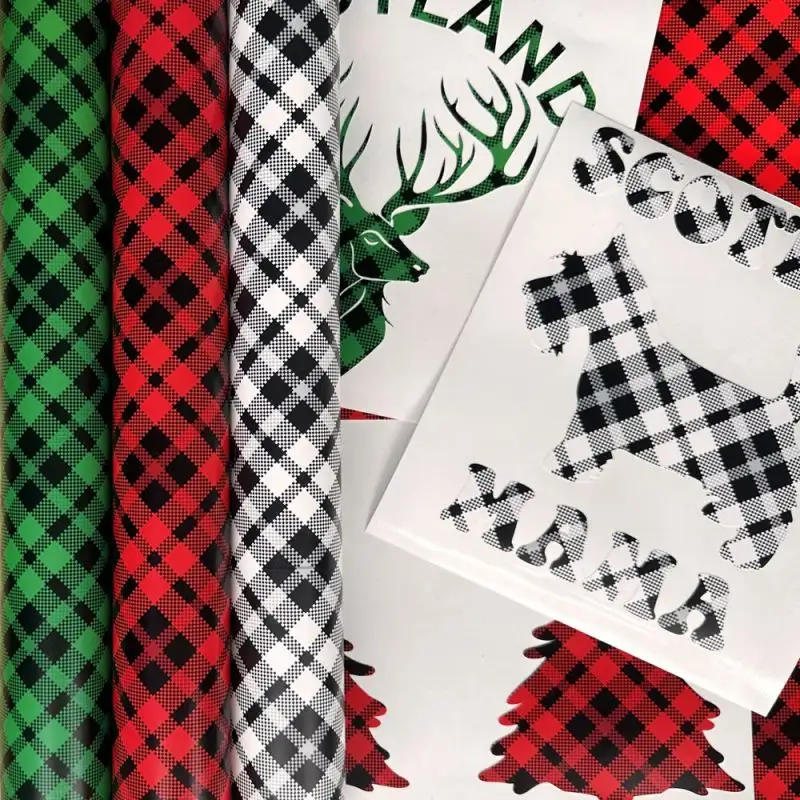How to Cut and Weed Foil Direct Plotter Films for Professional Results

Achieving crisp, professional-looking results with foil plotterfolien depends heavily on mastering two critical stages: cutting and weeding. While the final heat application gets most of the attention, the precision of your initial cuts and the care taken during weeding set the foundation for a flawless finish. By understanding the specific requirements of foil films and implementing a meticulous workflow, you can transform these potentially tricky steps into a smooth, predictable process that yields stunning, gallery-worthy details every time.
The Essential First Step: Dialing in Your Test Cuts
Before you commit to your final material, a test cut is non-negotiable. This simple practice run saves time, material, and frustration. Use a small scrap of the exact foil film you'll be using for your project. Load it into your plotter and run a test design featuring a variety of elements—straight lines, curves, and small text. The goal is to find the perfect balance of blade depth and pressure. You want the blade to cut completely through the foil layer without scoring the carrier sheet underneath. A properly cut design will feel smooth to the touch; if you feel ridges, your blade is likely cutting too deep.
Finding the Sweet Spot with Blade Depth and Pressure
The unique, often thinner composition of foil films requires a more delicate touch than standard vinyl. Start with your plotter’s recommended settings for the specific film you're using, but be prepared to make micro-adjustments. Generally, a lower blade depth and less pressure are needed compared to thicker craft vinyl. If the film isn't cutting through completely, increase the depth in the smallest increments your machine allows. If the film is tearing or the carrier sheet is being scored, decrease the depth immediately. Remember, a sharp blade is crucial; a dull blade will tear the foil rather than slicing it cleanly, making weeding nearly impossible.
Mastering the Cut for Intricate Designs
When your design includes fine details, small text, or complex patterns, a few extra precautions make all the difference. First, reduce your plotter's cutting speed. A slower blade navigates tight corners and sharp angles with more precision, preventing the material from shifting and ensuring cleaner cuts. For extremely delicate designs, consider using a specialized fine-line blade. Additionally, ensure your design software is set to output clean vector paths without any unnecessary nodes, as these can cause the blade to hesitate or jump, resulting in imperfect cuts. Sending a clean, optimized file to your plotter is as important as the physical setup.

Creating the Perfect Weeding Environment
Weeding—the process of removing the excess foil from your design—requires the right tools and a comfortable setup. A well-lit workspace is essential for spotting the fine cut lines of your design. A self-healing cutting mat provides a perfect surface that won't dull your tools. The two essential tools for this task are a quality weeding hook and a set of precision tweezers. The hook is ideal for lifting large sections of negative space, while the tweezers are indispensable for poking out tiny inner pieces from letters like "e" or "a." Having both at your fingertips streamlines the process significantly.
Developing a Strategic Weeding Technique
Approach weeding like a surgeon, with patience and a steady hand. Start from a corner of your design and gently lift the excess foil using your weeding hook. Try to pull the material back on itself at a low angle. If you encounter resistance, don't force it; this often means a spot hasn't been fully cut. Use your hook to carefully trace the stubborn cut line instead of yanking, which can tear the delicate parts of your design you want to keep. For intricate sections, use your tweezers to gently coax the small pieces out. Turning your mat as you work can provide a better angle and reduce hand strain.
Troubleshooting Common Cutting and Weeding Issues
Even with careful preparation, you might encounter a few hurdles. If the foil is tearing during weeding, it's almost always a sign of a dull blade or insufficient cut depth. Revisit your test cut and blade condition. If the design is lifting off the carrier sheet during weeding, your blade may be set too deep, compromising the adhesive hold. If you find that small, intricate sections are not holding their place on the carrier, using a piece of application tape as a "bridge" to hold them down during the weeding process can be a lifesaver, ensuring everything stays perfectly aligned.
Preparing for a Perfect Transfer
Once your design is fully weeded and every piece of unwanted foil is removed, you're almost ready for the heat press. Before you apply heat, take a final, critical look at your design on the carrier sheet. Use your tweezers to gently press down on any lifted edges and ensure every element is lying perfectly flat. This last quality control step guarantees that when you apply the heat, the entire design will make uniform contact with your substrate, resulting in a perfectly transferred, professional-grade foil application that showcases all your careful cutting and weeding work.
By treating the cutting and weeding stages with the same importance as the final press, you elevate your entire workflow. This methodical approach transforms these steps from a chore into a satisfying part of the creative process. The reward is a perfectly prepared design that transfers with stunning clarity, leaving you with a flawless, professional result that truly does justice to the brilliant medium of foil.
- Art
- Causes
- Crafts
- Dance
- Drinks
- Film
- Fitness
- Food
- Games
- Gardening
- Health
- Home
- Literature
- Music
- Networking
- Other
- Party
- Religion
- Shopping
- Sports
- Theater
- Wellness



